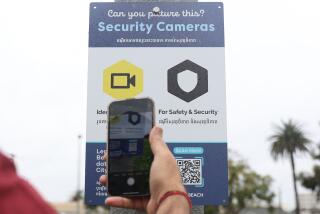UC Berkeley lab receives $10 million to fund ‘big data’ research
The National Science Foundation has awarded $10 million to UC Berkeley for the purpose of advancing “big data” research and technologies.
The grant was part of a larger initiative by the Obama administration that allocated $200 million around the country to big data technology Thursday.
The Berkeley funds will go toward the university’s Algorithms, Machines and People Expedition, which is already conducting several projects tackling large data sets. Previously, AMP Expedition was mostly funded by the private sector, but the money award by the NSF will roughly double its operating budget, said Michael Franklin, director of AMP Expedition.
“As more and more of our activities go online, it’s becoming very easy to collect very detailed data, but what’s hard is actually making sense of that information,” he said. “Buried in all that data are the keys to understanding of what’s going on and how to improve things.”
The main issue with big data right now is twofold: The size of data overwhelms current infrastructure, and nowadays data comes from many different sources, making it very difficult to compile and understand.
“if we can really crack the big data problem, there’ll be benefits across all these different areas that are online right now,” Franklin said.
Among the projects going on at Berkeley’s AMP Expedition that hope to make sense of all this data is a cancer genoming application. The purpose of that app is to analyze the genetic sequences of numerous types of cancers to help those in the medical field create personalized treatments for people suffering from the disease.
“There’s a flood of genomics data that is coming out that researchers are going to have to be able to deal with,” Franklin said. Right now the growth of that data is far outpacing the rate at which computers become faster.
Another project is Mobile Millennium, a traffic-monitoring system tracking Northern California as well as Stockholm, Sweden, using 60 million GPS points every day. Mobile Millennium uses crowd sourcing along with other data sources, such as traffic cameras, to monitor traffic and forecast it, said professor Alexandre Bayen, the project’s leader.
While Mobile Millennium isn’t the only entity that tracks traffic, it does it from a research perspective, not a commercial one.
“You can view this as the research, if you will, on this sector,” Bayen said. “We’re here to provide an open platform so people can do research … which advances the state of the art in this field.”
UrbanSim is another one of the projects at AMP Expedition. It takes data from different sources including city records and third-party databases, such as lists of businesses, to put together highly detailed models of cities. Right now, that project is collecting data in San Francisco.
The people behind UrbanSim hope that after the project creates a model for a city it will offer the ability to experiment with different policy decisions and see what would happen. For example, it could show the potential results of a new public transportation hub, or how the city would be affected if a new pedestrian mall was built.
ALSO:
Siri may soon talk to a Mac near you
Mega Millions: 5 things to do with apps if you win
Google’s self-driving car takes blind man to Taco Bell
Follow Salvador Rodriguez on Facebook or Twitter
More to Read
Inside the business of entertainment
The Wide Shot brings you news, analysis and insights on everything from streaming wars to production — and what it all means for the future.
You may occasionally receive promotional content from the Los Angeles Times.











